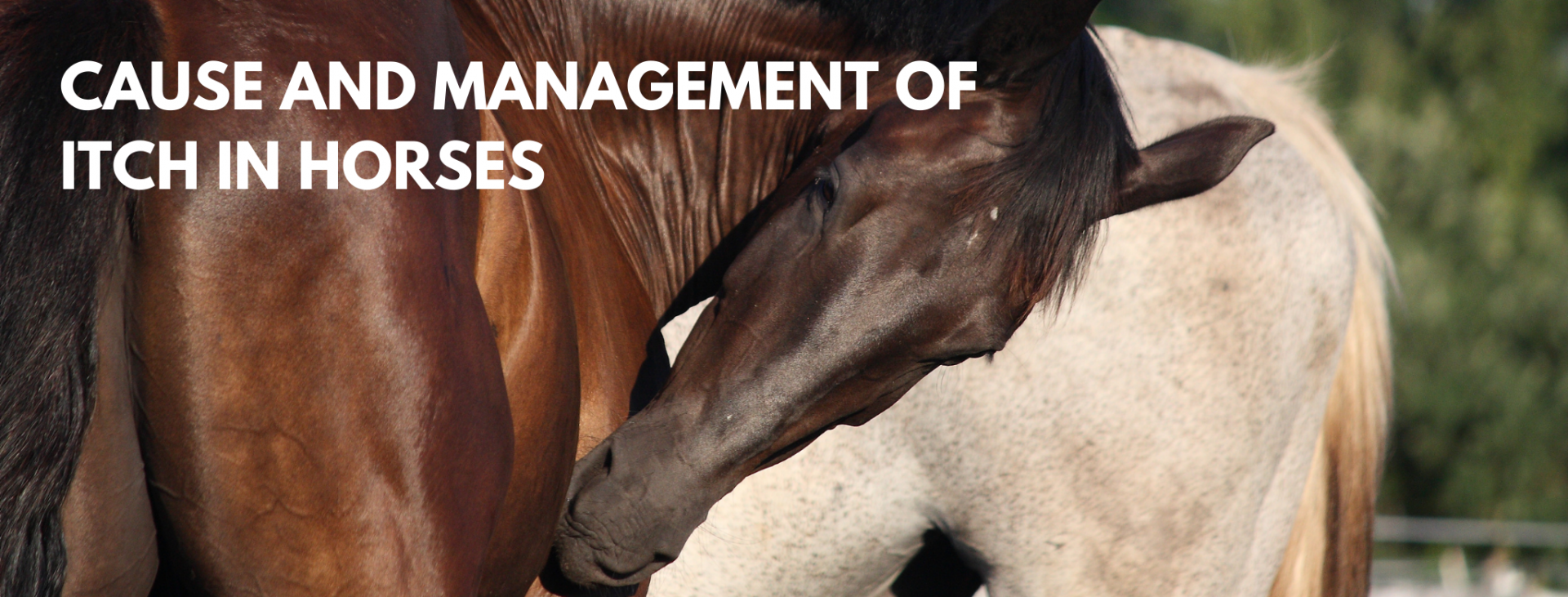
24 Sep Causes and Management of Itch in Horses
Caring for an itchy horse can be frustrating and worrying for owners, so in this blog we delve more into the causes and management of Itch in horses!
If you’ve ever had a bad mozzie bite, or a reaction to something that leaves you itchy, you know how difficult it is to not scratch at the area! Well, Horses, like humans can suffer from insect bites, allergies and skin conditions too. Some horses can have such a severe reaction or sensitivity, that they can itch and scratch so hard they leave raw wounds, opening them up to the risk of infection -which can often result in…you guessed it…more itching!
One of the most common causes of Itch in horses is Sweet Itch or Queensland Itch. Horses with itch can be left with rubbed out manes and tails, bald patches and skin abrasions, and even weepy sores which if left untreated can turn into scarred, calloused skin. Some horses are more susceptible than others, and recurs seasonally.
A horse that is suffering from itching or skin conditions can also develop irritability and stress, become exhausted from the constant scratching, injury themselves in the process of scratching and become unrideable from discomfort.
It’s important to manage Itch in horses carefully, so that you can keep your horse happy and healthy. In this blog, we’ll take a closer look at Itch, Sweet Itch or Queensland Itch as it is commonly called.
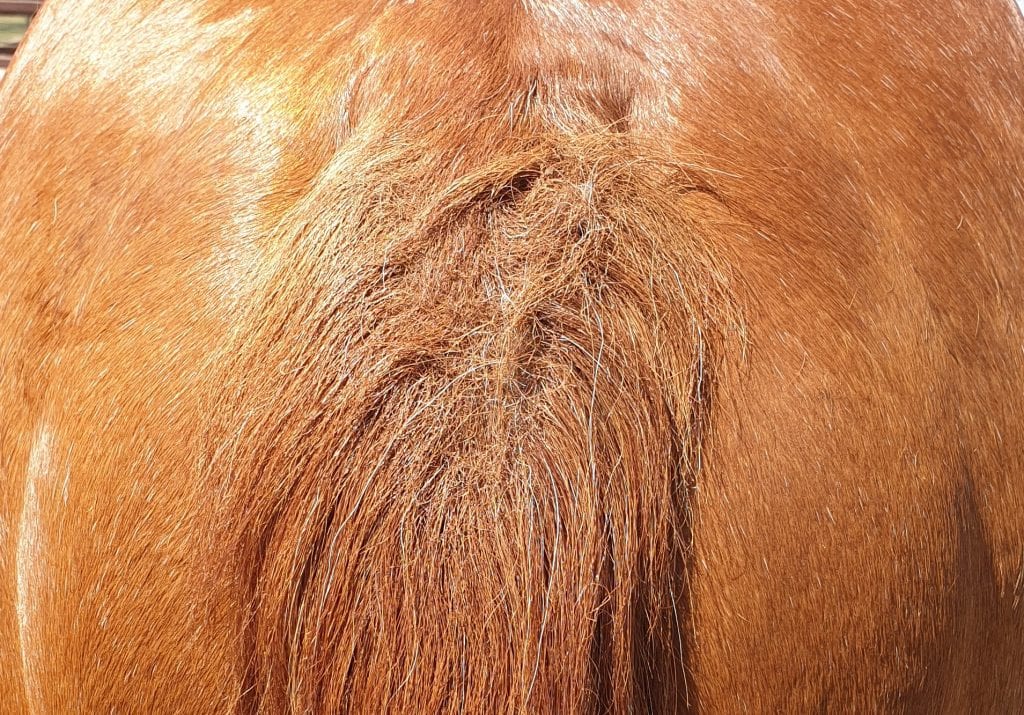
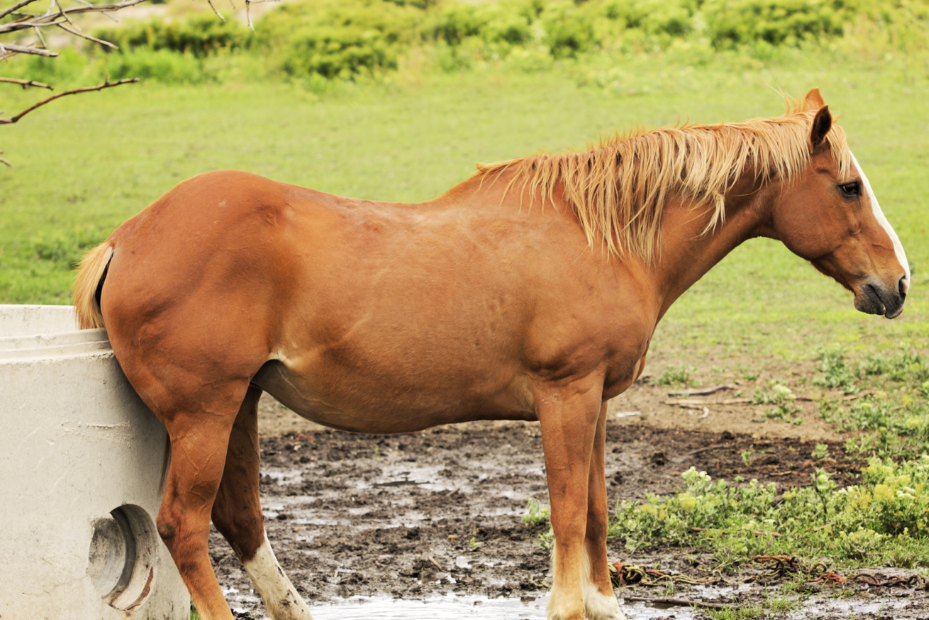
Sweet itch or queensland itch
What is it?
Sweet Itch or Queensland Itch is a seasonal issue that occurs on many continents and goes by many names! Summer Itch, Adobe Itch, Spanish Itch, California Itch, and more. Perhaps the most accurate and scientific titles are Summer Seasonal Recurrent Dermatitis or Culicoides Hypersensitivity.
Queensland Itch is a skin condition which forms as a reaction to insect bites from midgies or Culicoides. The reaction is an allergy to the saliva in these insects, which creates skin hypersensitivity making the horse very itchy. They can often spend hours biting themselves or rubbing against fences and trees to get relief.
The excessive rubbing can lead to hair loss and raw patches of skin. This can get horses into a cycle of itching, and lead to further irritation from infection, bacteria or yeast that gets into the raw areas.
Itch is not contagious, although it does tend to reoccur annually in susceptible individuals.
When and where does it occur?
Sweet Itch occurs all over the world! Because sweet itch or Queensland itch is a result of insect bites, it tends to reoccur annually during the warm, humid months when the insects are most prevalent. Midges or Culicoides love wet, humid environments, so coastal areas are often hard hit.
They’re not limited to these areas though, as they can swarm anywhere there is a bit of shade and free standing water, like in long grass, under shady trees and around troughs or wet patches in paddocks.
Midges hate hot, dry and windy conditions!
What can you do?
To manage Sweet Itch there are two main steps to focus on – get rid of the cause and decrease the reaction and symptoms!
Getting rid of the cause can be tricky, because it’s pretty hard to get rid of midges totally. But what you can try to do is remove the areas that they like to be, and protect your horse. Try not to let your troughs leak, and slash or mow areas with thick, wet undergrowth. Remember, they don’t like hot, dry windy conditions! So if you have a horse that is susceptible, move them to a paddock that gets more wind, or doesn’t have thick grass or shady areas.
Midges are most active and tend to swarm at dawn and dusk, so keeping your horse away from any risky areas at these times, or in a stable can help you to avoid them a bit.
Rugging can also help to keep the insects away, but if your horse is already itchy, and continues to get bitten, they can end up rubbing your rugs to pieces.
Managing Itch from the inside out
Your horse’s skin is an organ, and a plays a big role in your horse’s immune system and internal function. This means that you can help to address itch from the inside out. These fixes are much more long term, and can help you to prevent, as well as treat the issue.
Because the bites cause an allergic reaction, there is an inflammatory response which causes histamine to be released. Histamine helps to fight the cause of the allergy, but is also a cause of the itchiness.
All horses, and especially allergy-prone horses need to have a diet that encourages a healthy immune system. For itchy horses, there are also foods that can are anti-inflammatories and anti-histamines.
Omega 3
Omega 3 is an essential fatty acid (EFA), which means it can’t be produced by the horse, and the nutritional requirements are completely dependent on dietary intake.
Omega 3 EFAs are anti-inflammatory, in comparison to Omega 6. In a Canadian study, feeding freshly crushed linseed to horses that were hypersensitive to Culicoides showed a reduced inflammatory response.
Herbal Supplementation
Herbs have been used in medicine for centuries to assist with the treatment and relief of allergies and inflammation.
Itch-Free is a specially formulated supplement that uses a blend of herbs that target a number of skin conditions, and has had great results on Sweet Itch or Queensland Itch in both the UK and Australia.
It contains Garlic Granules, Burdock Root, Nettles and Chamomile.
- Garlic is an anti-inflammatory, anti-histamine which can help in reducing the allergic response associated with Itch, and reduce the itching. Garlic can also act to keep flies and insects away, adding an odour to their sweat which helps to repel!
- Burdock root is a detoxifying herb, which helps to cleanse the blood and aid in the treatment of skin conditions.
- Nettles are high in Vitamin C, and also help to promote health blood supply and circulation. So they also help cleansing and cooling the blood which assists with in reducing the allergic response.
- Chamomile is not just a calming herb for behaviour, it also has anti-inflammatory and antioxidant properties, which can soothe the skin and reduce redness and irritations.
When using a supplement to assist with Itch in horses, it’s important to note that the time they take to work can vary depending on the horse. Because Itch is seasonal, you should start using the supplement before the weather changes, and midges start to appear. This can also help to protect your horse and help to prevent Itch, rather than to waiting until symptoms appear.
You can buy Itch-Free through our online store, or through one of our stockists.


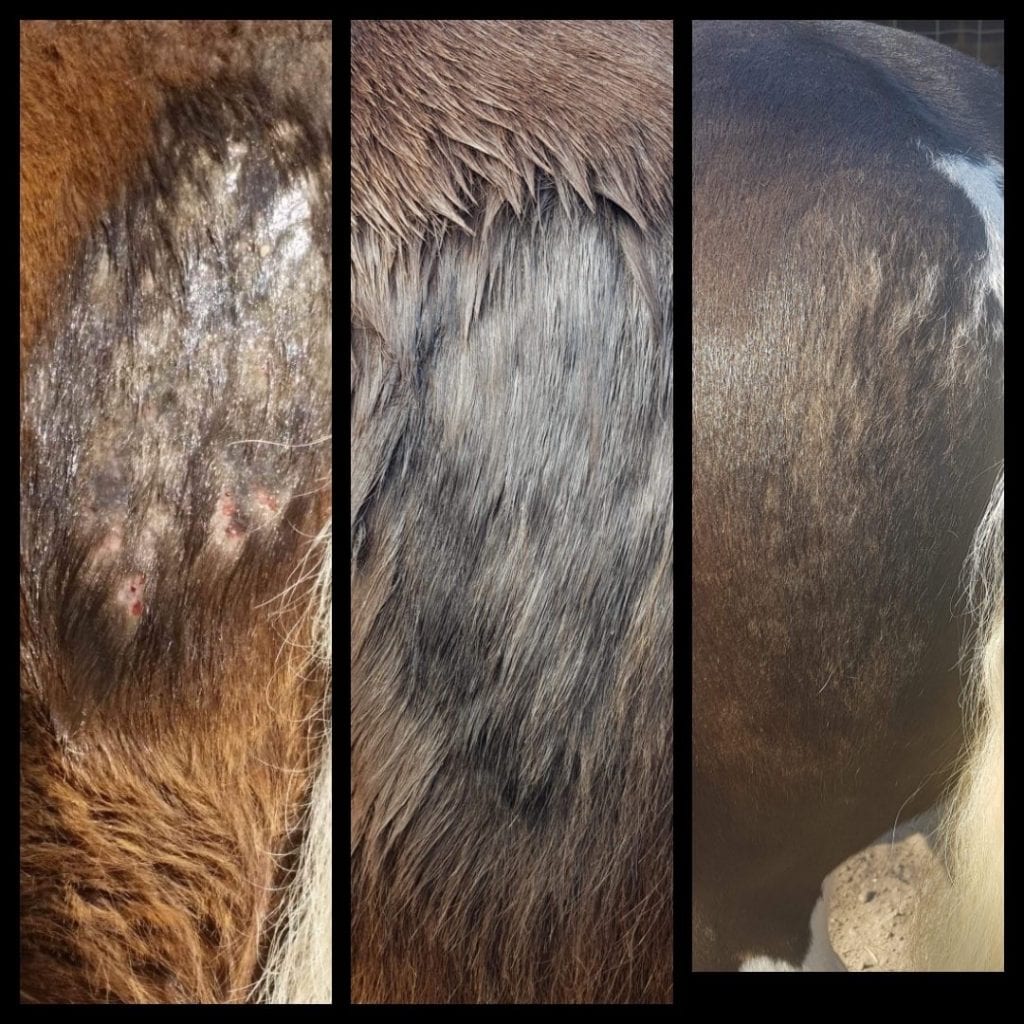
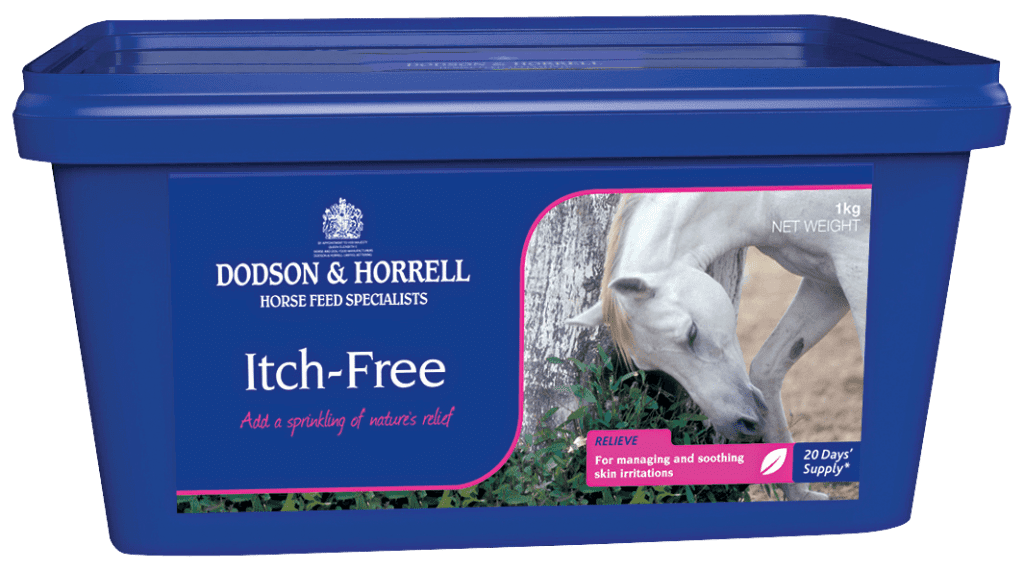

No Comments